In the Venezuela of Depoliticization, It’s Clear That the Doñas Del Cafetal Were Right
The middle class was always the opposition's core. But years of political failures and betrayals pushed this group, full of prophetic ladies from El Cafetal, towards depoliticization. In the age of Corina Yoris, is the middle class going back to politics?


It is Wednesday, February 14th, 2024, and I am in the Sambil shopping mall. The mall shows an unusual activity for a Wednesday, but normal for Valentine’s Day: girls with freshly delivered bouquets, boys nervously waiting holding flowers, couples going to the movies or to eat and people with ash crosses on their foreheads, since this year Valentine’s Day coincided with Ash Wednesday.
There is even a collective wedding in front of the elevator. It has been a tradition of the Sambil Group since 2005, but it was interrupted in 2016 due to the rapid collapse of the country. Gustavo Duque, the Mayor of Chacao, is the officiant of the ceremony. Alfredo Cohen welcomes him and says some happy words to those present.
Two days before, Luis Miguel gave a massive concert at the Simón Bolívar Monumental Stadium. In the streets, people take photos next to Las Meninas, a pop art exhibition that everyone seems to love. The Tiburones de la Guaira won the Caribbean Series and that same week the Vinotinto U23 team was close to qualifying for the Football Summer Olympics.
Described like this, it seems like any other day in 2006. But no. This is happening on the same week that military affairs expert Rocío San Miguel was forcibly disappeared along with her family. The same week we learned that a PDVSA retiree was also detained and disappeared for days. The same week in which more than twenty days have passed since three leaders of Vente Venezuela were detained, held incommunicado and prevented from exercising their own defense.
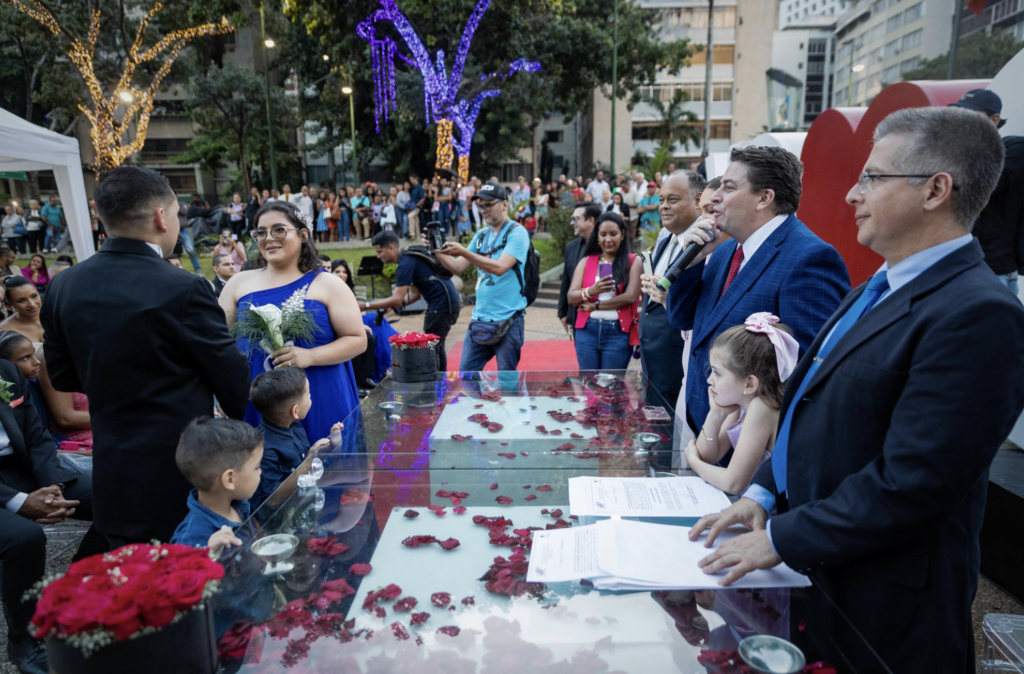
But this is not another article about the Caracas “bubble.” Nor is it a cry against consumerism or a moral condemnation of the enjoyment of life. Here I seek to talk about depoliticization of today’s Venezuela; understand what happened so that indifference towards politics, repression, torture and the authoritarian advance of the regime now prevails in a good part of Venezuelan society.
Because yes, although it may be regrettable, it is a real fact: a good part of Venezuela has been depoliticized. And although it is very easy to stand on a moral pedestal and throw stones at people for being more interested in seeing Luismi than in “the struggle,” I think it is more complicated to understand what has happened, what facts explain this kind of indifferent anomie in which a good part of the country is immersed.
The opposition’s core
The mobilizations of 2002 that led to April 11; the marches of the following months; the taking of Plaza Francia by dissident military officers; the national strike in December of that same year and January-February of the following year; the recall referendum; protests over the closure of RCTV; the demonstrations over electoral fraud in 2013; the brutal protests of 2014 and the even more numerous ones of 2017 and finally the support for the failed transition led by Juan Guaidó.
All of these episodes had something in common. It is an uncomfortable truth, which many find painful to remember: they were mostly middle-class mobilizations.
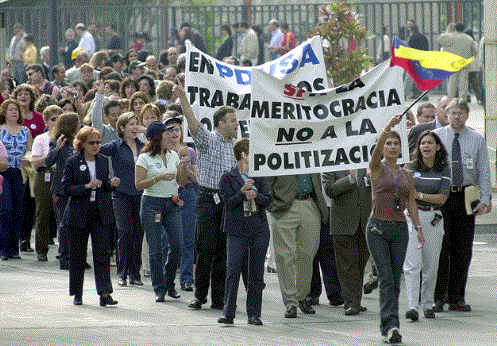
I’m not saying that the middle class is the only one that opposes Chavismo. To tell the truth, Chavismo always, even in times of high oil prices and Hugo Chávez giving away money left and right, had half the country against it. Sometimes that half of the country fell to 45% of the electorate, but in practice half of Venezuela always opposed him from day one.
However, when it came to mobilizing socially, things were very different. The opposition to Chavismo always had a great convocational success in the run-down middle class, which was formed during the democratic system (1958-1998) and in the shadow of oil revenues, for worse and for better.
They were the first to warn that Chavismo would become a dictatorial regime modeled on the Cuban revolution. And they were also the first to take to the streets in 2001, when Chávez was an undisputed leader, the political parties were in the doldrums and the official discourse of confronting the widows of “the fourth republic” still had an impact. In those years, decree 1011 and sentence 1013 mobilized a middle class that began to see how some of the pillars of the system that had formed them—freedom of expression and autonomous education—were threatened.
It is not that there were no poor people against Chavismo, or that they did not participate in opposition initiatives. Of course there were. What is, however, a fact is that, if we analyze the opposition as a social movement, its social base has always been in the middle class.
And yet, few recognize these people.
Prophets of El Cafetal
On the intellectual side there has always existed an undeniable contempt for the middle class. For a certain Venezuelan intelligentsia, the “sifrinos” have always represented something like the worst of evils. This is what those self-conscious intellectuals tell us whenever they write corny things about how horrendous, uneducated, despicable and horrible the middle class that reads their books, goes to their events, listens to their music or watches their short films and movies is. A middle class, according to them, made up of fools, empty people, plastics, brutes, consumerists, airheads, Mayameros and the insult that appeared in the first years of Chavismo: Doñas del Cafetal, referring to a middle class neighborhood of east Caracas.
“Doñas del cafetal” was categorized as a plump paranoid lady who was a fan of Marta Colomina; who exaggerated when she showed her concern for Chavismo and its tendency to the extreme left. That paranoia, any columnist-opinionist-analyst explained to us as soon as he had the opportunity, was part of the class prejudices of an arrogant sector of society and had no basis in reality.
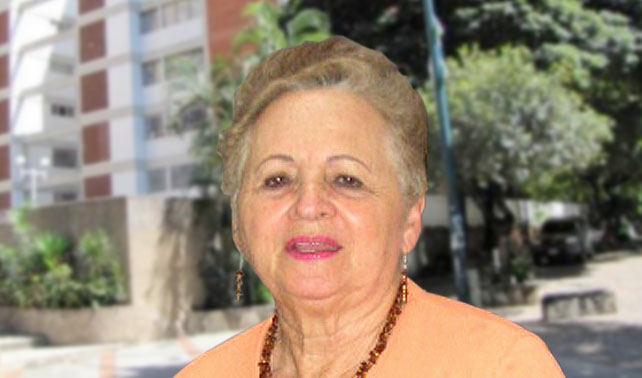
They also argued that worrying about these little things was a mistake, since the opposition had to build a sustained majority to demand a solution for “people’s problems” and not to focus on anti-communist and republican bullshit.
Today, when the country is intervened by Cuban agents who monitor dissidents and our armed forces; today when hundreds of people have been detained and subjected to pantomime trials for opposing the government; when there are hundreds of people murdered by the regime and thousands of people injured and tortured; when we even have our balseros dying while trying to reach Trinidad and Tobago, these geniuses of thought have been incapable of admitting that they underestimated Chavismo and that those “despicable” ladies were always right.
Sifrinos vs. Politicians
Chavismo came to power in the midst of an enormous discredit of political activity. And that middle class, at the time a promoter of anti-politics, had a lot to do with the discredit.
Partly for this reason, those first years of anti-Chavismo had a marked anti-political accent. During the national crisis of 2002-2003, political parties found themselves excluded and displaced from the leadership of that movement. The so-called “civil society” was mobilized at the initiative of the CTV union confederation and the Fedecámaras business guild, demanding the same anti-party slogans that brought Chavismo to power.
The defeat of that movement, which was sealed with the recall referendum of 2004, was the ideal moment for the parties to begin a recovery in their public evaluation. The idea that what been done in previous years had been a mistake became a norm: that the solution was political and electoral and that the past was full of irresponsible adventurers. The opposition led by business leaders, journalists, union members, NGO figures and entertainment artists was replaced by political leaders and opinion figures such as Teodoro Petkoff who became a kind of wise old man whose opinions in TalCual dictated the dominant pattern of thought.
And yet, despite that speech, the middle class never abandoned that political opposition to which it gave its greatest electoral victories and its partisan recovery. It is impossible to imagine political parties like Primero Justicia and Voluntad Popular without the determined mobilization of that middle class with which they had a tense and at the same time symbiotic relationship.
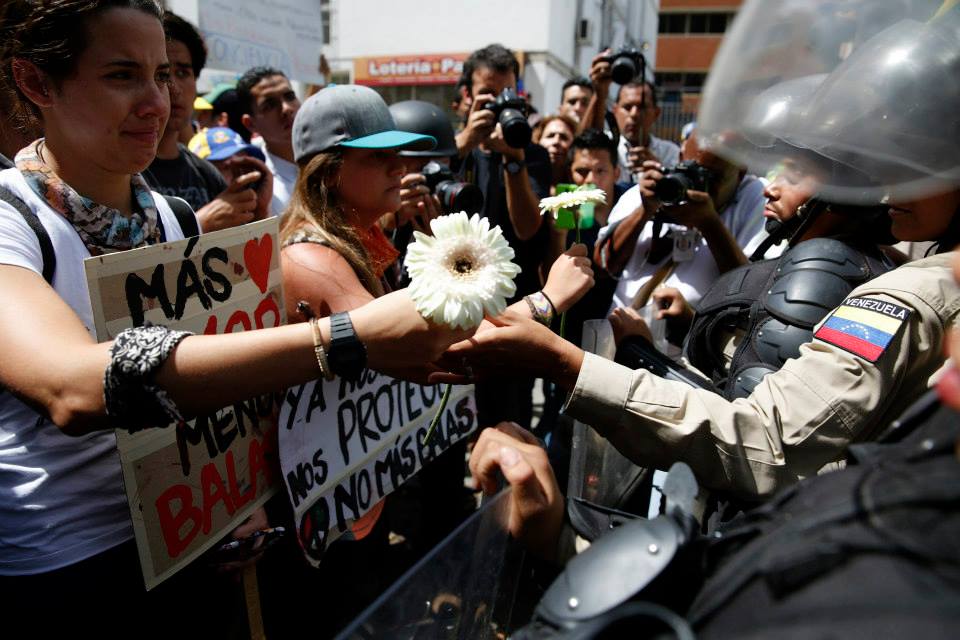
And that is the crux of the matter: the political opposition was left waiting for a Caracaz-like “estallido social” that never happened; a reaction from sectors that until 2012 did not stop accompanying Hugo Chávez.
And while the political class waited for the majorities, in 2013 a rupture began between the political class and that social base that was always mobilized against Chavismo.
The electoral fraud denounced by Capriles and his attitude of first calling and then calling off street demonstrations meant a break. In 2014, with La Salida, it became clear that this middle class no longer felt represented by the opposition’s electoral-institutional strategy in force since 2004.
The following years, with their setbacks and failures, continued to light the fuse of indignation and the divorce was absolute from 2017 onwards. The failure of Juan Guaidó’s interim government, which fueled an emotional frenzy, was the final blow to these leaderships.
The rupture was confirmed with the enormous defeat that all the leaders of what we can call the traditional opposition suffered in October 2023 at the hands of María Corina Machado in the primaries.
Is the damage done?
Today it is known that most Venezuelans are against Maduro and Chavismo. But this majority is not expressed in terms of social or street mobilization. The unions protest, yes, but only to ask for better labor and wages.
It is true that many Venezuelans today seem willing to vote or even organize in structures such as the “comanditos” proposed by María Corina Machado as part of the 600K network. But they do not seem willing to take to the streets to demand the end of the regime. And even less to assume the cost in repression, death, or persecution that this entails.
Those who were are now disconnected from politics. They are dedicated to a kind of permanent evasion, either trying to live within the commercial bubble that emerged in 2019 or denying reality in a kind of post-traumatic psychological reaction.
A friend of mine exemplifies this brilliantly. A few days ago, I told her that “Simón”, Diego Vicentini’s film, would be released on Netflix. “I didn’t go see it in the cinema, I don’t want to see it on Netflix. I need to believe that those years did not exist,” she told me.
And today, while the regime advances by leaps and bounds in its repressive escalation, many demand that these citizens show their commitment to the country: “Why don’t you go out and be outraged like you did until a few years ago?” Well, here are some questions that can help us decipher that enigma:
What impact has the massive migration that already encompasses 20% of the Venezuelan population had on the middle class? How do the life goals change for people who were, let’s say, 20 years old when Chávez came to power and today are 45 years old, contemplating a change that seems impossible while a good part of their adult life has already passed? Is it appropriate to morally condemn middle class people because today they can afford to go to a restaurant, concert, or shopping center after years of scarcity, misery and repression? Wouldn’t it behoove the opposition to put aside that moralizing discourse and try to get these people to combine their commercial relief with a new political commitment? And finally, will someone take responsibility for the enormous political failures that for many people have meant disillusionment and disconnection with the political class?
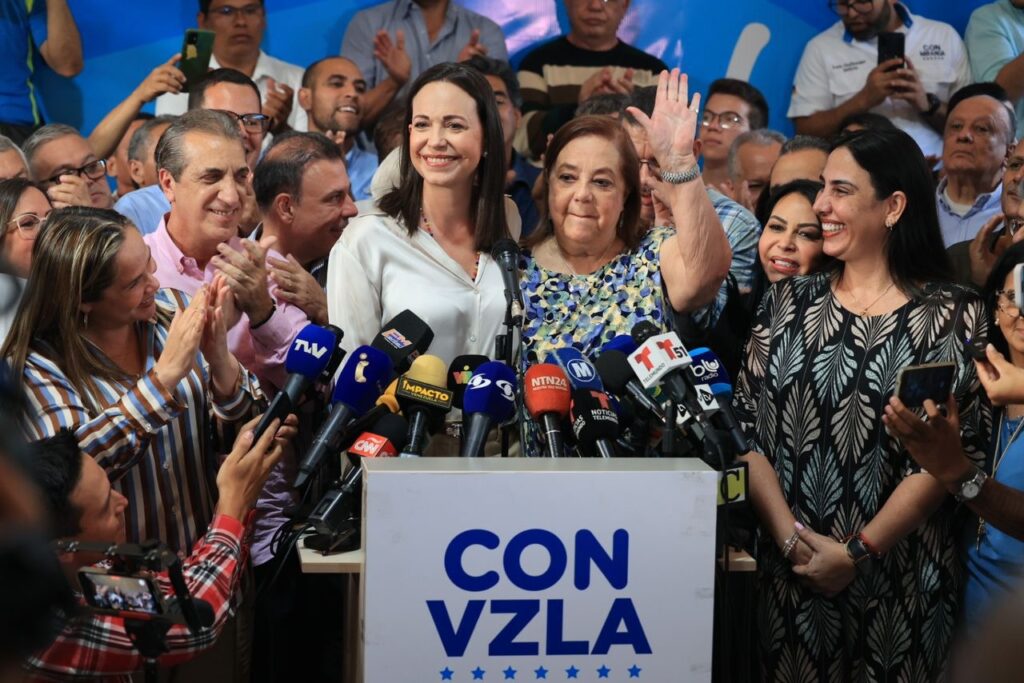
Fast forward: it is now Friday, March 22nd. The regime has prevented María Corina Machado from registering her candidacy in the CNE. In the afternoon, a press conference to announce who will be Machado’s replacement in the election (we’ll see if they will let her register) stands out for something: this image.
Yes. Women. Middle-class women. The doñas de El Cafetal once again standing up for a country that is divided into two parts: one survives as best it can outside the economic bubble of the center; and another, for the most part, remains oblivious to the electoral tribulations. In the midst of this, once again it is a middle-class lady, Corina Yoris –an scholar with a surprising and impeccable resume– who takes the reins in the midst of the tragedy.
Why is it that it costs us so much to recognize it?
Caracas Chronicles is 100% reader-supported.
We’ve been able to hang on for 22 years in one of the craziest media landscapes in the world. We’ve seen different media outlets in Venezuela (and abroad) closing shop, something we’re looking to avoid at all costs. Your collaboration goes a long way in helping us weather the storm.
Donate




